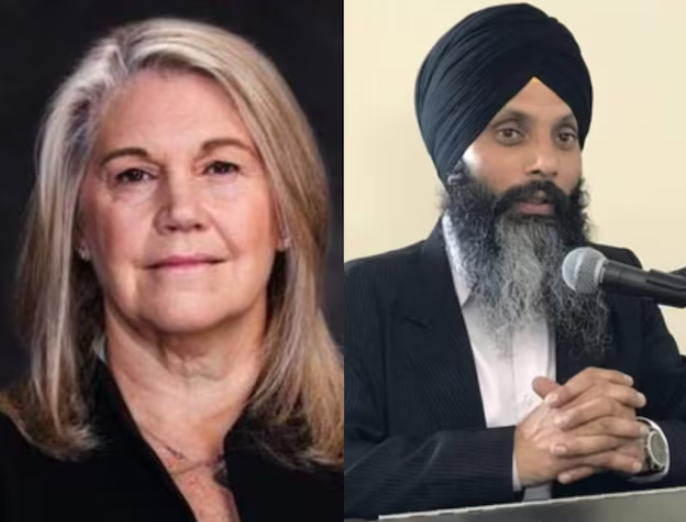Amid the escalating diplomatic tensions between India and Canada over the assassination of Sikh separatist Hardeep Singh Nijjar, former Canadian National Security Adviser (NSA) Jody Thomas has provided new details that could reshape the narrative surrounding the incident. During her testimony before Canada’s foreign interference inquiry, Thomas revealed that early intelligence and police investigations suggested Nijjar’s killing might have been retaliation for the murder of Ripudaman Singh Malik, a man once accused of involvement in the 1985 Air India Kanishka bombing.
Nijjar, a leader of the Khalistan Tiger Force, was gunned down outside a gurdwara in Surrey, British Columbia, last year. Thomas, who served as Canada’s NSA at the time of Nijjar’s death, told the inquiry that the initial hypothesis focused on a potential connection to Malik’s murder, which occurred almost exactly a year prior, also at the same gurdwara. However, members of the Canadian Sikh community were reportedly dissatisfied with this assessment, raising concerns about the true motive behind Nijjar’s assassination.
“As the investigation progressed, further intelligence emerged suggesting that Nijjar’s killing may have been an extra-judicial killing,” Thomas stated, adding, “Through very good intelligence and policing work, we learned that there was a high probability this was the case.”
This revelation supports earlier accusations made by Canadian Prime Minister Justin Trudeau, who alleged the involvement of Indian agents in the killing of Nijjar. However, India has consistently denied any role in the assassination, with the Ministry of External Affairs rejecting Trudeau’s claims as baseless and politically motivated. India has also pointed out that Canada has failed to provide any concrete evidence to support the allegations.
Thomas acknowledged that Canada’s investigation had limitations when it came to sharing information with India. “We couldn’t share as much evidence with India as America was able to. This explains the difference in the handling and cooperation of the two cases,” she explained during her testimony.
The diplomatic rift between the two countries has continued to widen in recent weeks. After Canada named India’s High Commissioner to Ottawa as one of the “persons of interest” in the Nijjar investigation, India responded sharply, calling the accusations “preposterous” and part of a broader strategy to smear India for political gain.
Tensions escalated further when both nations expelled diplomats in response to the allegations. While Prime Minister Trudeau has since backtracked slightly, acknowledging that Canada does not have “hard evidentiary proof” and only intelligence pointing to Indian involvement, the strain on bilateral relations remains palpable.
Ripudaman Singh Malik, whose 2022 murder is now seen as possibly linked to Nijjar’s assassination, was a key figure in one of Canada’s most infamous terrorist incidents. Accused of helping fund the 1985 Air India Flight 182 Kanishka bombing that killed 329 people, Malik was acquitted of the charges in 2005. His killing came after a public feud with Nijjar, who had labeled Malik a traitor to the Khalistan cause.



